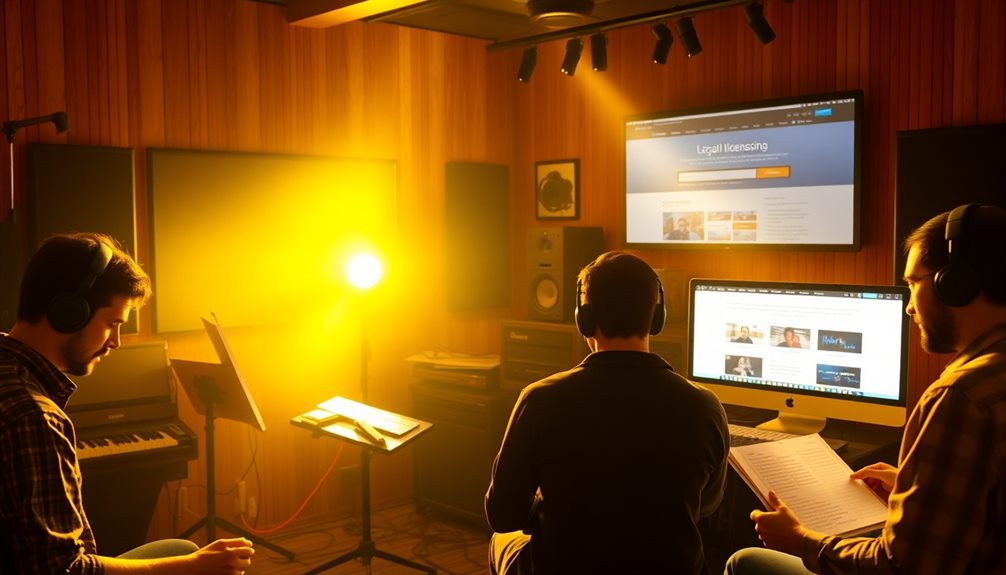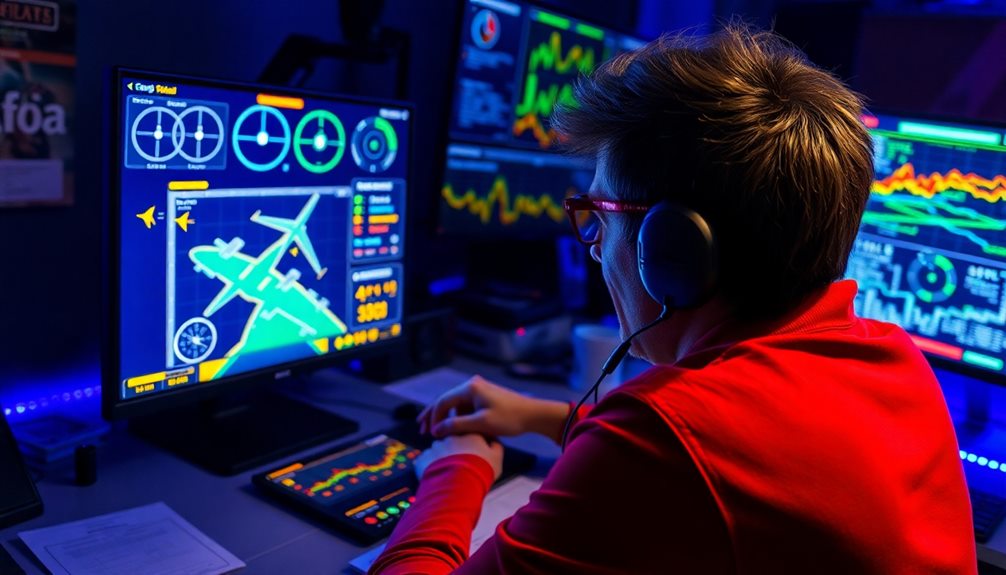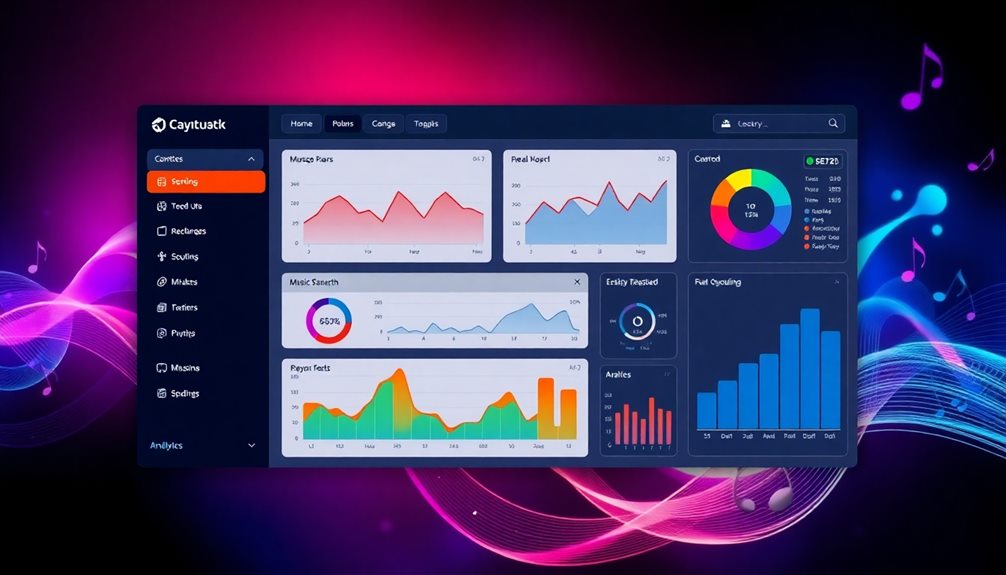To find and use production music legally, it's important to understand music licenses. You'll need a synchronization license for pairing music with videos, and possibly a master use license for specific recordings. Look for royalty-free music on platforms like Epidemic Sound or YouTube's Audio Library. Always check the licensing terms to comply with credit requirements. Creative Commons music can offer free use, but you must credit the creator properly. Remember, using music without permission could lead to hefty fines or legal trouble. Keep exploring to discover more exciting tips about music licensing and creative projects!
Key Takeaways
- Obtain synchronization and master use licenses for pairing music with visuals and using specific sound recordings legally.
- Explore royalty-free music platforms like Epidemic Sound and AudioJungle for tracks with clear licensing terms.
- Utilize Creative Commons music, ensuring proper attribution as specified in the license agreement.
- Maintain documentation of all licenses to prove compliance with copyright laws and avoid infringement.
- Regularly check for updates in licensing agreements to ensure ongoing compliance and payment of license fees.
Understanding Copyright and Licensing
Understanding copyright and licensing is essential for anyone looking to use music legally in their projects.
When you want to use music, you need to know about Copyright Law. It protects original music compositions and sound recordings, lasting for the creator's life plus 70 years. This means that using someone else's music without permission can lead to serious trouble!
To use music in your videos, you'll usually need two important licenses: a synchronization license from the music publisher and a master use license from the record label for the specific recording.
These licenses are part of a License Agreement that allows you to use the music legally.
Music rights organizations like ASCAP, BMI, and SESAC can help you find the right permissions. They've lots of options for you!
Types of Production Music Licenses

When it comes to using production music, knowing the different types of licenses is crucial for staying on the right side of the law. Each license serves a unique purpose.
A synchronization license is what you need when you want to pair music with visual media—like videos or films. You'll need to get this from the music publisher. If you're using a specific sound recording, you'll require a master use license from the record label that owns it.
If you're playing music in public, you'll need a performance license. This guarantees the copyright holder gets paid for their work.
For ongoing projects, a blanket license is perfect! It allows you to access an entire catalog of music for a one-time fee, giving you unlimited use within certain limits.
Another option is a creative commons license. This type offers various permissions, and some may let you use music for free, as long as you give credit.
Just be careful not to fall into copyright infringement! With the right use license, you can enjoy royalty-free music without worry. Knowing these licenses makes your creative journey much smoother!
Finding Legal Music Sources
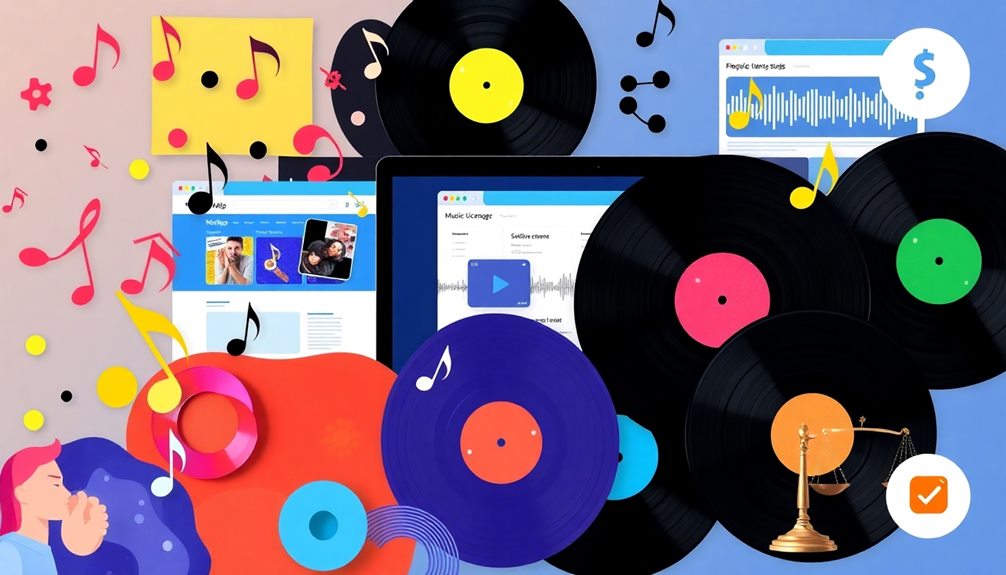
Finding legal music sources is essential for any project, especially if you want to avoid copyright issues. Luckily, there are many great options out there! You can search for royalty-free music on platforms like Epidemic Sound, Artlist, and AudioJungle. These sites offer a wide range of licensed tracks you can use for various projects.
If you're looking for free music, try using Creative Commons search engines. They help you find music that you can use for free, but make sure to check the specific license type for proper attribution. YouTube's Audio Library is another fantastic resource, filled with free tracks that are often royalty-free and don't require extra licenses.
Don't forget about stock music libraries! They provide instant access to downloadable tracks with clear licensing terms, making your production workflow much smoother.
Compliance and Attribution Guidelines

Using production music involves more than just locating it; you must also follow compliance and attribution guidelines to avoid legal troubles.
It's vital to understand the licensing terms provided by the publisher, as these terms tell you how to use the music and if you need to give credit. With the growing complexity of algorithms and technology, making sure your use of production music aligns with legal standards is increasingly important, especially in light of automation in business.
Here are some key points to remember:
- Always read the licensing agreements for specific rules about usage.
- When using Creative Commons music, give proper credit to the creator, including the title, author, and a link to the license.
- Keep documentation of all licenses as proof of compliance with copyright laws.
Respecting the artist's rights is vital. They may have specific attribution requests, and ignoring these can harm your relationship with them.
Also, keep an eye on any changes in licensing agreements, especially if you're using subscription services. Following these guidelines makes sure you're paying any necessary License Fees and staying clear of copyright issues.
Consequences of Copyright Infringement
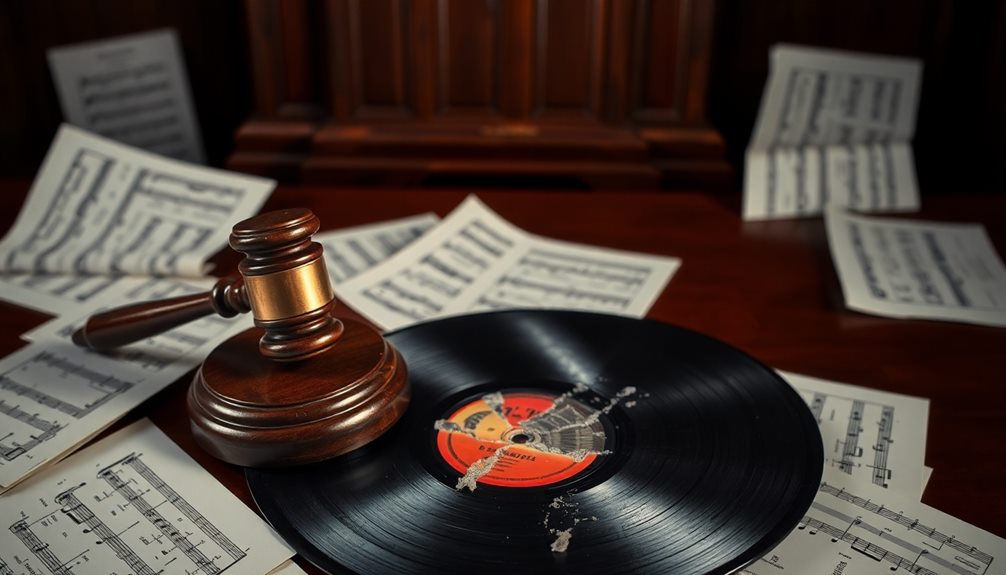
Committing copyright infringement can lead to severe repercussions that every content creator should be aware of. If you use a sound recording without permission, you could face hefty fines, sometimes reaching thousands of dollars! Platforms like YouTube may issue takedown notices, and you risk account suspension or even termination.
Legal action from the publisher or record label can land you in court, resulting in costly legal fees and potential damages to the copyright holder. This can really pile on the financial stress. Plus, infringement can damage your reputation, making it hard to get future collaborations or deals.
To help you understand the consequences better, here's a quick table:
| Consequence | Description |
|---|---|
| Fines | You could be fined thousands of dollars! |
| Account Issues | Takedown notices can lead to account strikes. |
| Legal Action | Lawsuits can incur legal fees and damages. |
Awareness and adherence to copyright laws are essential. Understanding your right to use music and exploring different licenses can save you from unnecessary trouble. Always check the contact information for licensing before using copyrighted music!
Frequently Asked Questions
How to Get Permission to Use a Song in a Film?
To get permission to use a song in your film, you'll need to secure a Synchronization License from the music publisher and a Master Use License from the record label. Detail your request thoroughly.
How Do I Find Production Music?
Finding production music's like treasure hunting. You'll explore platforms like Epidemic Sound and AudioJungle, sift through Creative Commons, and immerse yourself in YouTube's Audio Library. Each source holds gems just waiting to enhance your projects!
How Can I Legally Use Music?
To legally use music, you need to obtain the right licenses. Consider royalty-free options, check Creative Commons for permissions, or explore public domain works. Always verify compliance with license terms to avoid legal issues.
How to Find Out if Music Is Copyrighted?
To find out if music's copyrighted, check its publication date; anything before 1923 is usually public domain. Use online databases like the U.S. Copyright Office and consult music rights organizations for verification.
Conclusion
Using production music is like painting a vibrant picture for your project. With the right licenses, you can add color and life to your work, making it truly shine. Remember, finding legal music sources and following the rules is super important. It helps you create without worries and keeps everyone happy. So, immerse yourself in the world of production music, explore your options, and let your creativity flow! Your next masterpiece is just a beat away!
